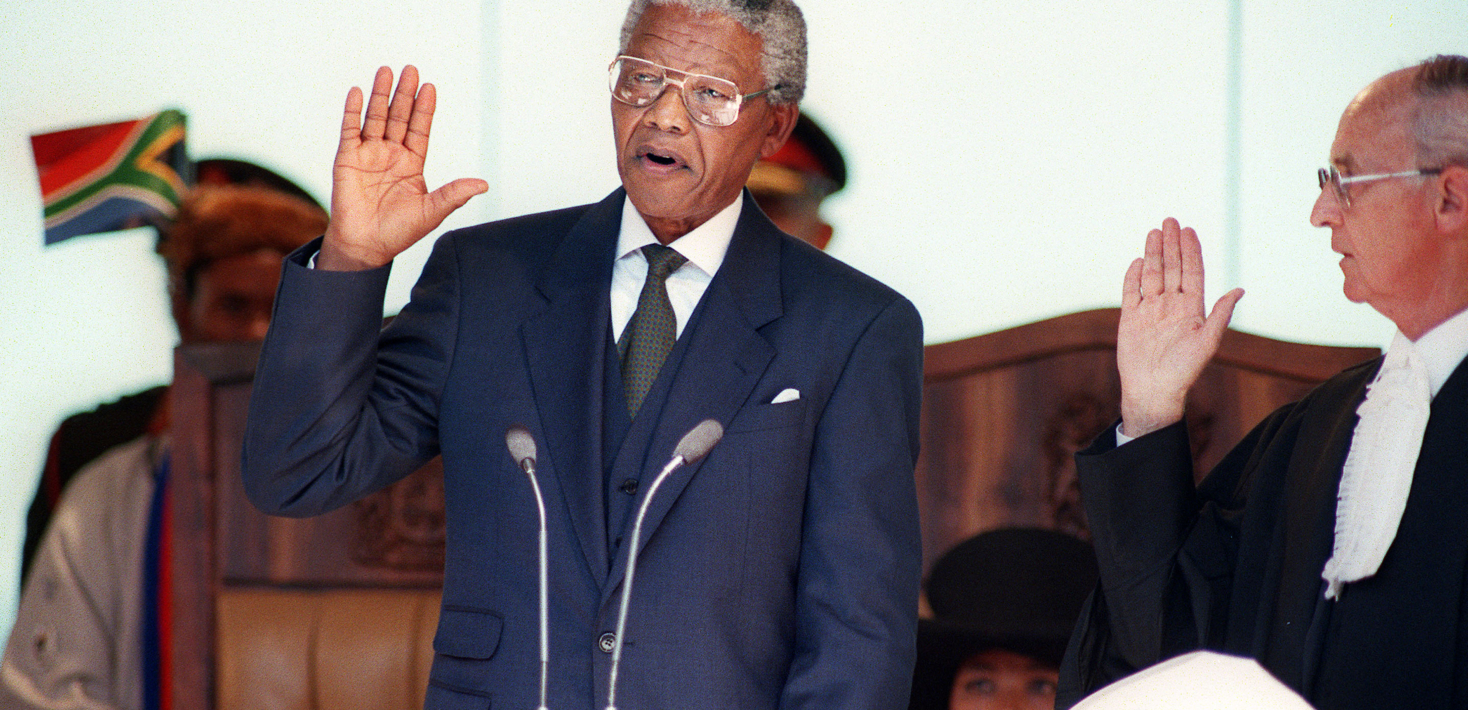Today marks 30 years since Nelson Mandela became President of South Africa. For Amnesty International’s Europe Media Manager, Stefan Simanowitz, it was an important moment marking the start of his journey as a young activist and journalist. Here, he recalls why his trip to South Africa to work for the African National Congress was just the start of his fight for human rights.
Exactly thirty years ago, just after Nelson Mandela had taken the oath of office as South Africa’s first fully representative democratically elected President, came a moment that still gives me goosebumps. There was a deafening roar as squadron of fighter jets flew low over the assembled crowd of which I was part. Instinctively, we flinched. But then four gigantic Oryx helicopters passed low above our heads each towing beneath it a giant flag of the new South Africa and it dawned on us. The military — and the state to which the military belonged — were no longer enemies of the people: they now belonged to the people.
If Mandela’s inauguration was a highwater mark of human development, the current state of world affairs feels like a low point in recent history.
After graduating, I had travelled to South Africa to work for the African National Congress (ANC) as it transitioned from liberation movement to political party and ultimately, to government. I’d long been active in the Anti-Apartheid Movement in Britain and was filled with a youthful idealism which – despite having taken a battering – has never left me. Indeed, the power of that inauguration day and the struggle that had led up to it, remain an indelible source of inspiration for me as an activist.
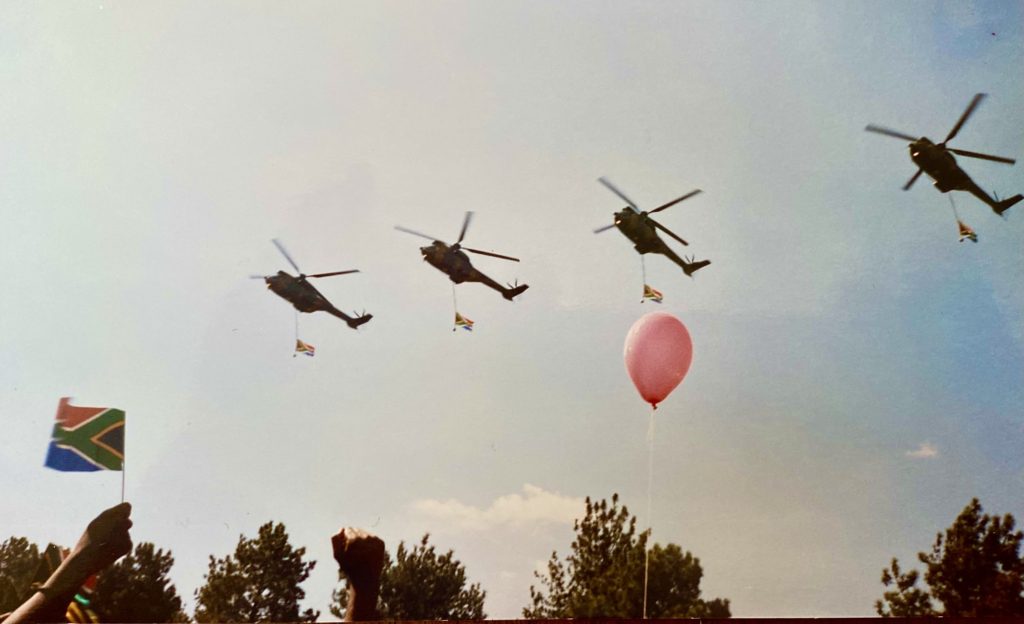
When Nelson Mandela was released from jail in 1992, South African poet Breyten Breytenbach wrote: “Perhaps there is now a little more sense to our dark passage on Earth,” and as Mandela was sworn in, watched by a live television audience of more than a billion, these words had never rung so true. Sadly, in the three decades that have passed since, they have not come close to ringing so true again.
A distant place
Not only has that moment of high-octane global optimism not been matched, but with the world mired in seemingly intractable conflicts and almost seven months into the Gaza war, that day feels like a very distant place.
Indeed, if Mandela’s inauguration was a highwater mark of human development, the current state of world affairs feels like a low point in recent history. Yet despite the current clouds of despondency, there are lessons to be learned and hope to be gleaned from that day in South Africa and the movement that made it possible.
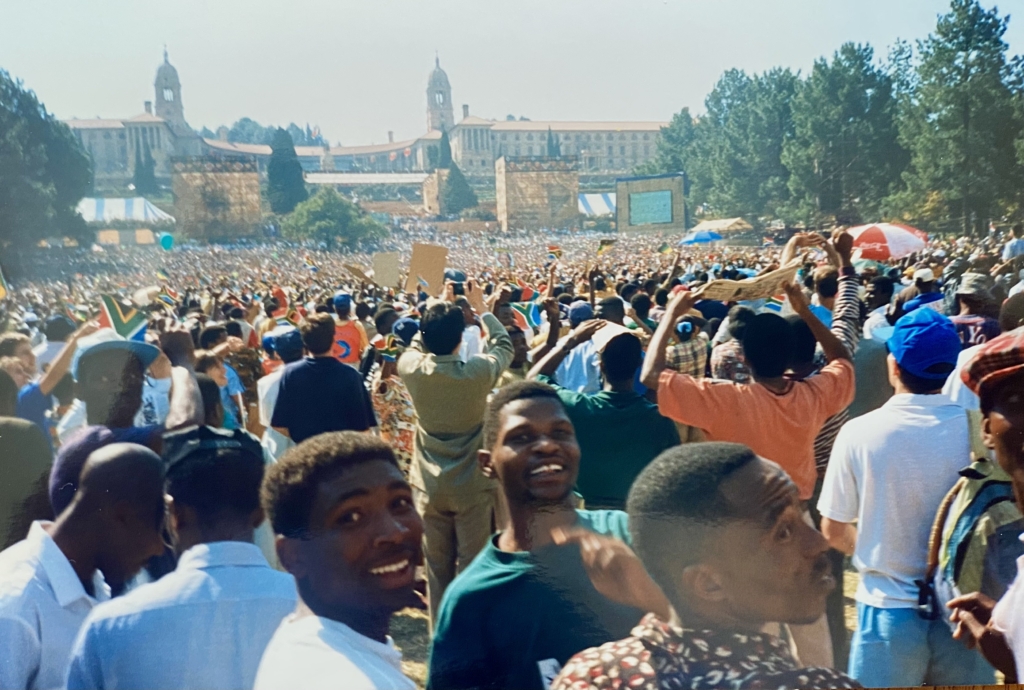
To understand how that day came about, it is vital to recognise the fortuitous confluence of historical and political factors at work. The fall of the Berlin Wall less than five years before had shifted the Cold War’s tectonic plates undermining support among some Western governments for the system of apartheid as a bulwark to the supposed threat of Communism. The impact of boycotts was being keenly felt and the clamour of international approbation was growing ever louder. Added to this, the grassroots anti-apartheid struggle was reaching its height with a politically educated population unified around a single clear goal steered by leaders of remarkable integrity, principle and moral stature.
There are lessons to be learned and hope to be gleaned from that day in South Africa and the movement that made it possible.
Simplistic depictions of the ‘miracle birth’ of the so-called rainbow nation, mask the fact that that day in 1994 was the culmination of a long and painful gestation. The ANC had been formed 82 years earlier and the liberation movement had seen decades of campaigning, struggle and sacrifice.
Indeed, it is easy to forget just how close the country came to civil war even in those tense months, weeks and days before the elections. As someone who was working for the ANC during that time, I can attest that there were many times — right up until election day itself — that, in Mandela’s words, it seemed impossible until it was done.
Witnessing history
At midnight on election eve, I watched as the new flag was raised above parliament in Cape Town. A few days later, as the results were announced in Cape Town’s Grand Parade, a wave of emotion swept the crowd. A week after the results, I joined a bunch of ANC staff as we piled into a battered Toyota and made the journey to Pretoria to witness history.
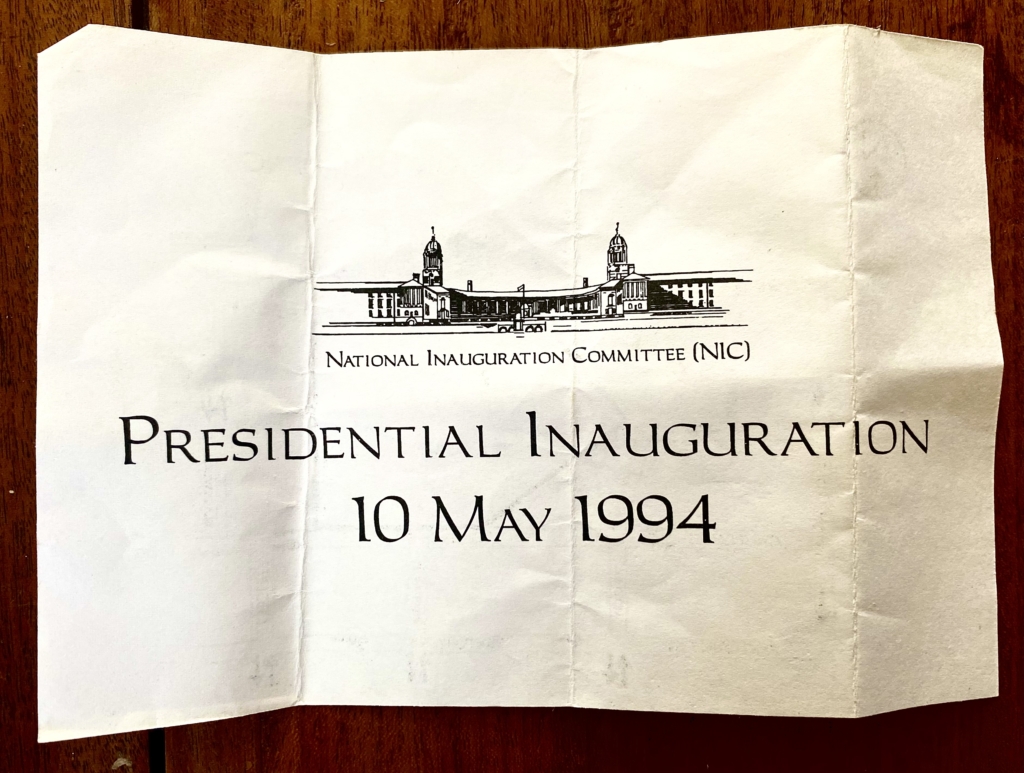
For me, Nelson Mandela, had been part of my consciousness for almost as long as I could remember and South Africa’s freedom struggle was my formative political experience. As a child visiting South Africa, I would lie on my fold-out bed on the balcony of my grandparents’ flat looking out across the dark ocean at the dimly burning lights of Robben Island and think of him. At school, I had done projects on apartheid and for so many years I had marched and protested and campaigned. In 1990, when news broke that Mandela would be released, I went straight to Trafalgar Square in London to celebrate, and the following day I stayed glued to the TV screen for the first glimpse of him.
Those who bore witness to the South African liberation movement do not just believe that change is possible. They know it can happen.
Watching as Mandela was sworn in, I was convinced that politics could change the world. But, as the promise of genuine transformative change as set out in the ANC’s Freedom Charter drained away, I turned my energies to grassroots campaigning and then to journalism. Reporting from Tahrir Square in Cairo during the Arab Spring or the Zuccotti Park in New York during the Occupy Movement, I saw occasional flashes of the energy that I’d experienced in South Africa but, as the limits of journalism became increasingly apparent, I returned to campaigning.
Where are today’s Mandelas?
Some may ask “Where are today’s Mandelas?”, and although we may never see his like again, there are many around the world following in his footsteps. I have been privileged to encounter and even work with many of them during my decade working for Amnesty International. Their stories and struggles may not make the headlines, but each day courageous activists and human rights defenders, poets and politicians, musicians and journalists stand up against injustice. And each year, we celebrate their victories.
What has happened in South Africa over the last three decades – the false steps and failures – does not tarnish the brightness of that day which shone with possibility in newly post-Cold War world.
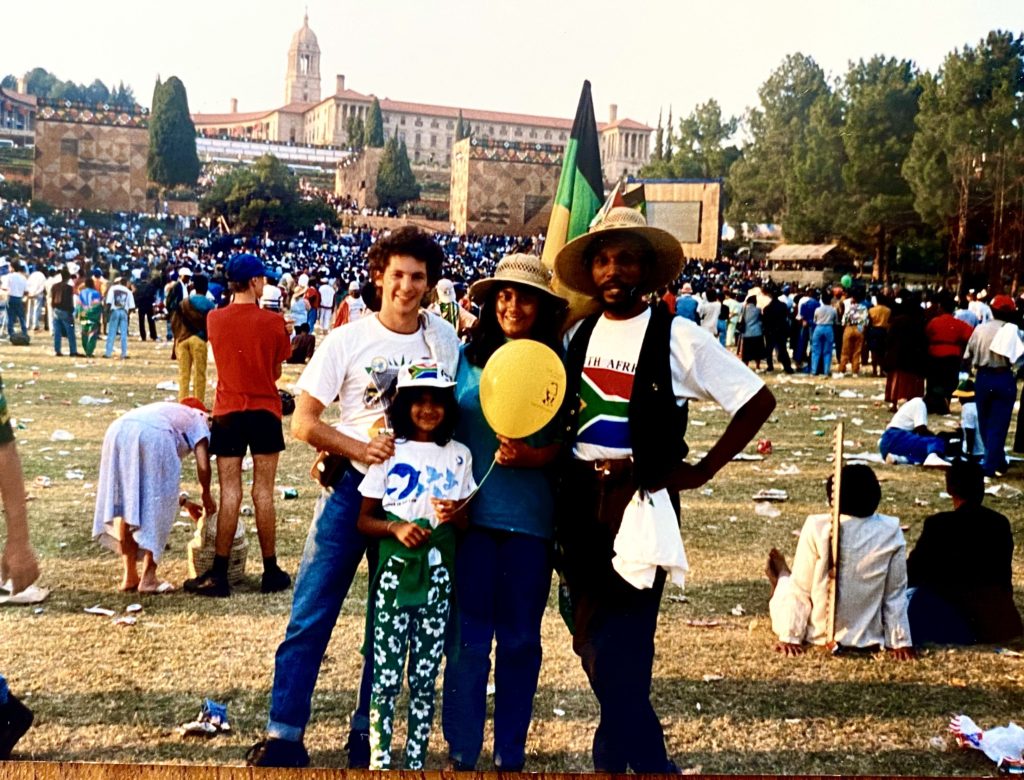
Whilst these may be dark times, we should take strength from that day thirty years ago. Change does not come easily and it does not come quickly. But nonetheless, those who bore witness to the remarkable power of the South African liberation movement do not just believe that change is possible. They know it can happen.
<div class="callToAction" role="note" aria-label="<strong>Be part of the change and join Amnesty InternationalBe part of the change and join Amnesty International
This piece was first published here by The Daily Maverick


